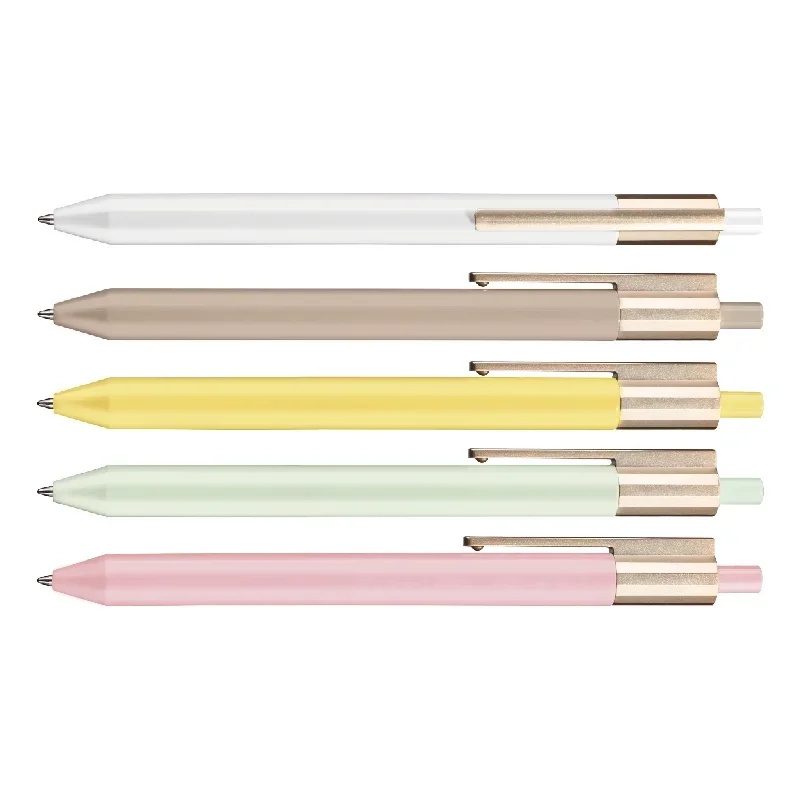The tip material of the ballpoint pen plays a vital role in the writing experience and writing effect. Different pen tip materials will affect the smoothness of handwriting, wear resistance, and comfort of writing. This article will discuss the tip material of ballpoint pens so that readers can better understand the impact of this key factor on the writing experience.

1. Stainless steel nib
Stainless steel is one of the common nib materials for ballpoint pens. Pen tips made of this material usually have good wear resistance and corrosion resistance and can maintain relatively stable writing quality during the writing process. The stainless steel nib has a smooth writing feel and is suitable for daily writing and drawing.
2. Tungsten pen tip
The tungsten pen tip is one of the most common ballpoint pen tip materials on the market. Its hardness is very high, it can leave clear writing on the paper, and its service life is relatively long. The price of tungsten pen tip is relatively low and suitable for mass consumption. However, the shortcomings of the tungsten steel pen tip are also obvious. Its strokes are relatively hard, not soft enough, and it easily wears the paper. It may not be suitable for people who require higher writing quality.
3. Alloy nib
Alloy pen tips are usually made of tungsten steel alloy, which has high hardness and wear resistance. The ballpoint pen made of this tip material can provide a smoother writing experience when writing, and has good durability, making it suitable for long-term writing use.
4. Ceramic nib
Some high-end ballpoint pens use ceramic material to make pen tips. The pen tips of this material have extremely high hardness and smoothness, which can provide excellent writing smoothness and comfort when writing, and have less wear on the paper, making it suitable for detailed writing. of writing and drawing.
5. Titanium alloy nib
Titanium alloy pen tips usually have high elasticity and corrosion resistance, which can provide a more comfortable feel and stable writing quality when writing. The pen tip made of this material can better adapt to writing at different angles when writing and is suitable for users who need to frequently adjust the writing angle.
6. Other materials
In addition to the common nib materials mentioned above, there are also some ballpoint pens made of special materials, such as nanomaterials, ceramic composite materials, etc. The nibs of these materials usually have special writing characteristics, such as super wear-resistant, ultra-fine writing, etc. It can meet users' personalized needs for the writing experience.
To sum up, the tip material of the ballpoint pen has an important impact on the writing experience. Different pen tip materials have their own characteristics. When choosing a ballpoint pen, users can choose the pen tip material that suits them according to their personal writing habits and needs to obtain a better writing experience.
https://www.johnshenstationery.com/Exploring-the-Tip-Material-and-Writing-Experience-of-Ballpoint-Pens.html
